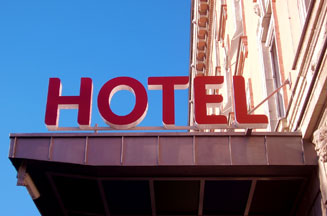
In these straitened times, budget hotels would appear to be one of the sectors that could do well. But last month, executives at Ibis and Travelodge were faced with the horror of national coverage of mouldy beds and dirty toilets found in some of their hotels by consumer information company, Which?
Cleaning standards aside, budget hotels have benefited both from leisure and business customers downgrading accommodation. Many budget brands are improving facilities to meet this demand, such as the offer of free wi-fi and breakfast.
Overall, the UK hotel market's value grew to £11.5bn in 2008, an increase of almost 18% since 2002, according to Mintel. However, when inflation is taken into consideration, this is a drop of 1.5% in the period. UK hotel occupancy rates are about 72% and have been static for several years, although the average room rate is £78, now more than 14% up since 2002.
Hotel transactions declined significantly in the first nine months of 2008, compared with the same period the previous year. In addition, developments are being cancelled or budgets reduced.
Nonetheless, there are factors that could benefit the market. Despite pressure on finances, more than 20% of consumers say short breaks are their most important spending priority, and they account for almost two-thirds of all leisure breaks in the UK. In addition, as the euro grows stronger against the pound, the UK will become more attractive as a holiday destination.
Similarly, consumers looking to be more environmentally conscious and cut down on air miles are picking the UK as a greener option. On the downside, unpredictable summer weather is a deterrent to UK breaks.
In London, overseas visitors account for more than half of hotel bed nights, according to TRI Hospitality Consulting, and the inbound market grew by 40% between 2003 and 2008.
Hotel visitors prefer full or half-board deals in UK hotels, according to TGI. The added value these bring is good news. Indeed, food at hotels is often a major attraction.
Since 2007, September has replaced August as the most popular month for hotel stays, but October has shown the highest growth over the past five years. This suggests that those without school-age children are making the most of quieter and cheaper periods to travel in the UK. One-fifth arrange their stays spontaneously, booking in the month they intend to travel.
Whitbread's budget chain, Premier Inn, is the UK's biggest hotel brand in terms of outlet numbers with more than 550 hotels. This year it is upgrading its rooms with flat-screen TVs, air-conditioning and Freeview, which will boost its appeal to business customers. Sales for its business account scheme have increased 36% since February 2008. It has also boosted its profile through TV ads starring comedian Lenny Henry, which focus on 'quality, comfort and value'.
Third in the UK market, and the world's market leader, is the Inter-Continental Group; its chains include Holiday Inn, Holiday Inn Express and Crowne Plaza. It also opened its first Hotel Indigo boutique venue at the end of last year in Paddington, London; the chain is already in existence in the US.
Hilton is one of several hotel groups to have been taken over by private equity firms in recent years, having been bought by Blackstone in 2007 for £12.96bn. The company has since announced plans to double its UK hotels to 150 over the next 10 years. It has also been introducing sub-brands to its stable, such as the mid-range Hilton Garden Inn and economy brand Hampton by Hilton. At the boutique end of the market, luxury brands such as Malmaison and Hotel Du Vin have built up small portfolios.
Mintel predicts that by 2013, the UK hotel market will be worth £13bn. However, once inflation is taken into account, this equates to a decline of 2%.

